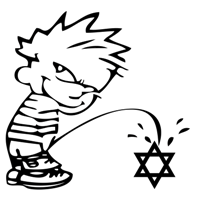wombatwoody
Gold Member
     Offline
Offline

Australian Politics
Posts: 3362
Wombat NSW
|
Palestine: A Four Thousand Year History
by Nur Masalha
This rich and magisterial work traces Palestine’s millennia-old heritage, uncovering cultures and societies of astounding depth and complexity that stretch back to the very beginnings of recorded history. Starting with the earliest references in Egyptian and Assyrian texts, Nur Masalha explores how Palestine and its Palestinian identity have evolved over thousands of years. Drawing on a rich body of sources and the latest archaeological evidence, Masalha shows how Palestine’s multicultural past has been distorted and mythologized by Biblical lore and the Israeli-Palestinian conflict. In the process, Masalha reveals that the concept of Palestine, contrary to accepted belief, is not a modern invention or one constructed in opposition to Israel, but rooted firmly in ancient past.
Professor Nur Masalha is a Palestinian historian and a member of the Centre for Palestine Studies, School of Oriental and African Studies, University of London.
Classical Antiquity and the Hellenistic period from 500 BC to 135 BC is one of the periods when records of life in Palestine were numerous and well-kept. This is also a period in which the first famous historians and authors, including Herodotus and Aristotle, wrote about the country in detail, and the strategic, commercial and cultural importance of Palestine to the various Hellenistic monarchs, military commanders, traders, travellers, cartographers and scientists led to great interest, and close examination of the country and its people. The term Palestine was also extensively used in referring to the entire area connected with modern Palestine in 5th century BC Ancient Greece. The name Παλαιστίνη (Phalastin) was widely used by the most important ancient Greek historians, cartographers, writers, philosophers and scientists, including Herodotus, Aristotle and Ptolemy. The Greco-Roman-Byzantine name ‘Palestine’ is commonly found in major classical Greek texts, especially the Histories of Herodotus, written near the mid-5th century BC.
Herodotus was a contemporary of Socrates and is widely referred to as ‘the Father of History’ (Cicero, 1st century BC). He was the first historian to systematically investigate historical subjects, arranging material into a historical narrative. Herodotus’ Histories is one of the most famous historical texts on the origins of the Greco-Persian Wars, a text known to academics, historians and history students throughout the world. Histories is now considered a foundational text in the Western academy. It serves as a key record of ancient oral traditions, politics, geography and the clashes of various powers that were known in Greece, Western Asia and North Africa. When it comes to ancient Palestine and toponymic memory, modern Western Christian writing relies partly on Herodotus’ classic work.
In this classical text (written from the 450s to the 420s BC), Herodotus writes about a ‘district of Syria, called Palaistinę’ and lists place names of ancient Palestine. Herodotus himself visited Palestine in the fifth decade of the 5th century BC. He travelled extensively through ‘the part of Syria called Palestine, I myself saw’, and acquired first-hand knowledge of the country and its people (Jacobson 1999). Herodotus refers to Παλαιστίνη (Palaistinę), Syria, or simply Palaistinę, many times as an area comprising the whole region between Phoenicia and Egypt.
Herodotus’ text includes the description of key towns and ports, the road later to be called Via Maris, and many other places he had seen and recorded. He describes in detail the city of Ascalon, an ancient seaport city. At the time of Herodotus Palestine was polytheistic and he consequently describes Ascalon as having a temple for Aphrodite Urania. The cult of Aphrodite Urania was associated with body and soul and with spiritual love, beauty, fertility, procreation and pleasure and was also associated with the sea and existed in several Palestinian cities, including the ancient port city of Jaffa, often referred to in Arabic by Palestinians as ‘Arus al-Bahr’ (Bride of the Sea).
David Asheri (1925‒2000), Professor of Ancient History at the Hebrew University of Jerusalem, Dean of the Faculty of Humanities (1972‒1975), in A Commentary on Herodotus, Books 1‒4, writes: the ‘Syrians called Palestinians’, at the time of Herodotus were a mixture of Phoenicians, Philistines, Arabs, Egyptians, and perhaps also other peoples ... at the time of Herodotus there were few Jews in the coastal area. (Asheri et al. 2007: 402) Herodotus, who travelled widely in Palestine and Syria and beyond the coastal region, does not mention Judaea or refer to Jews. He does not mention terms such Cana’an or Canaanites or Israelites in Palestine; nor does he describe monotheism in the country. First, as archaeological evidence shows, monotheism was a much later development in Palestine and the Near East (Masalha 2007). Second, also significantly, many of the Old Testament religio-ideological dogmas evolved centuries after Herodotus.
|

 Forum
Forum

 Home
Home 

 Album
Album 

 Help
Help

 Search
Search

 Recent
Recent 

 Rules
Rules 

 Login
Login

 Register
Register





 Pages:
Pages: 

